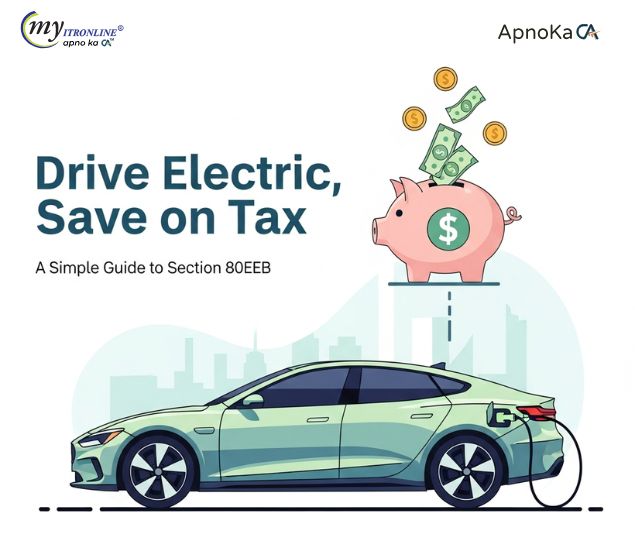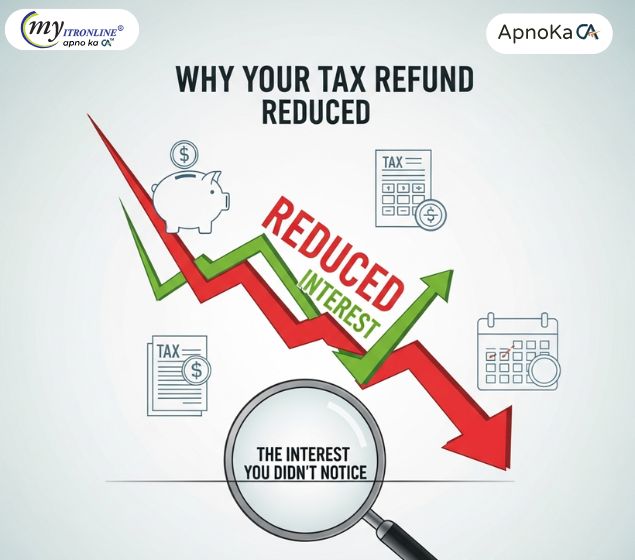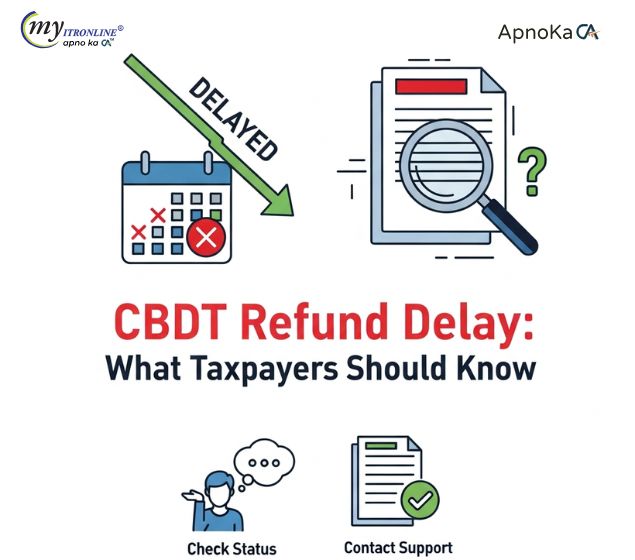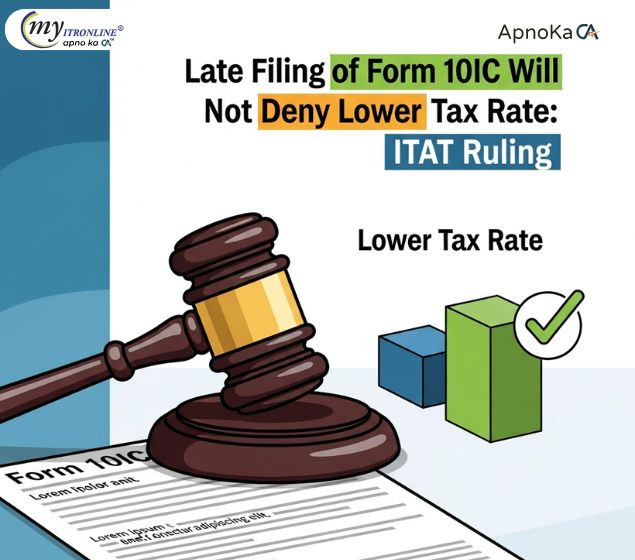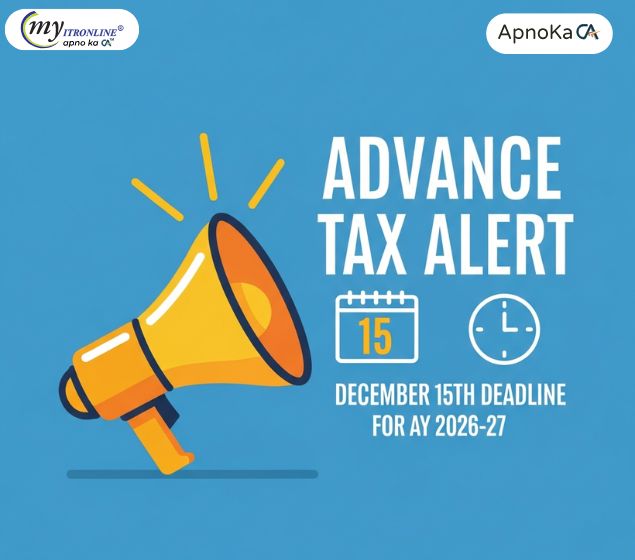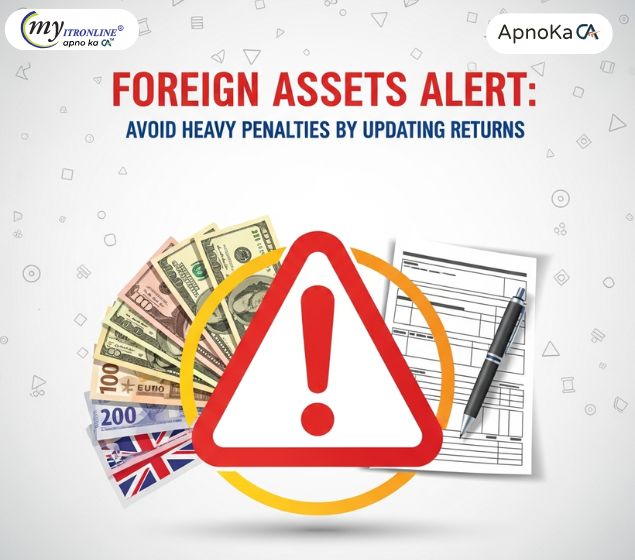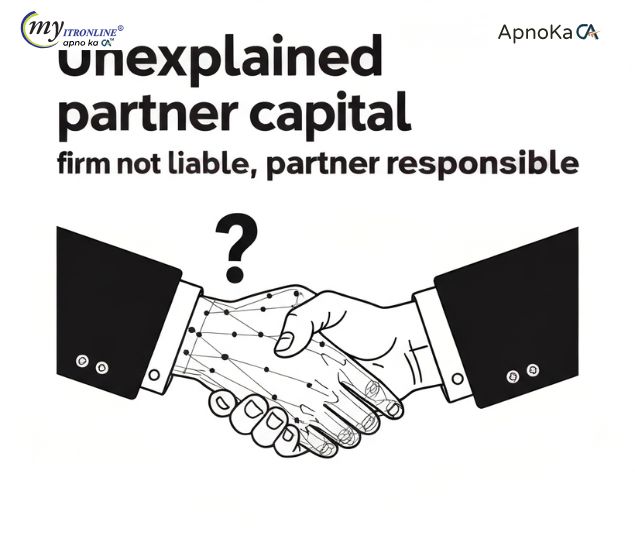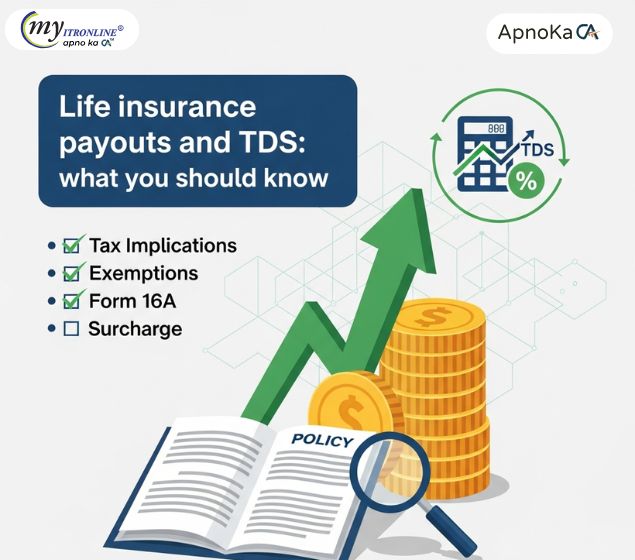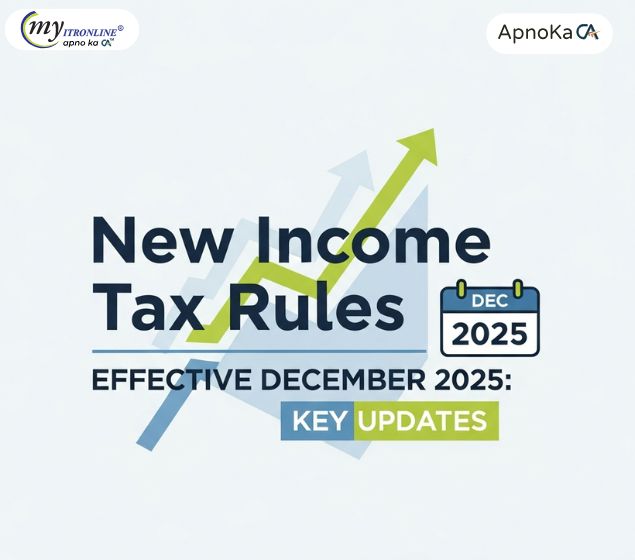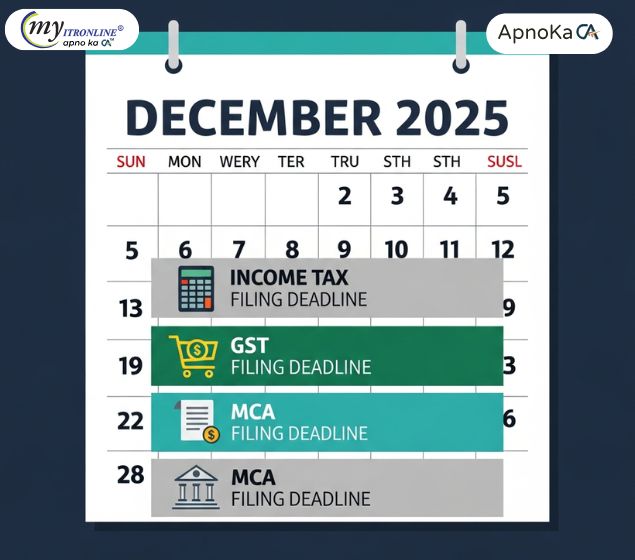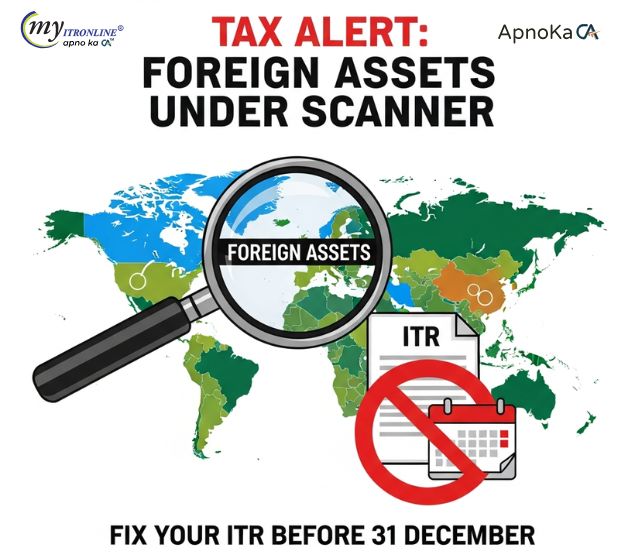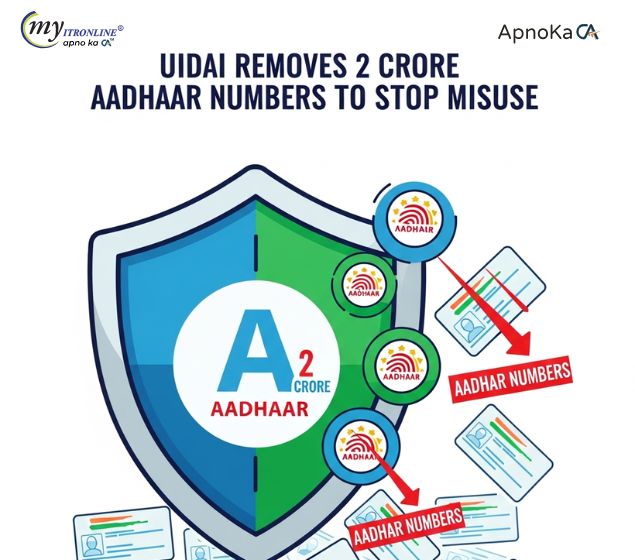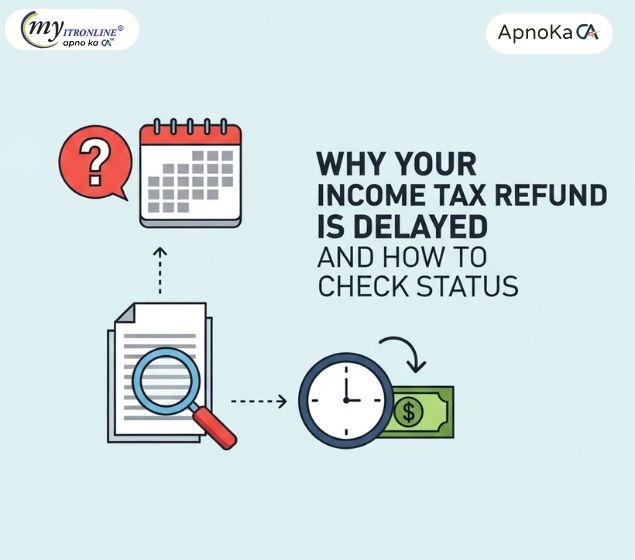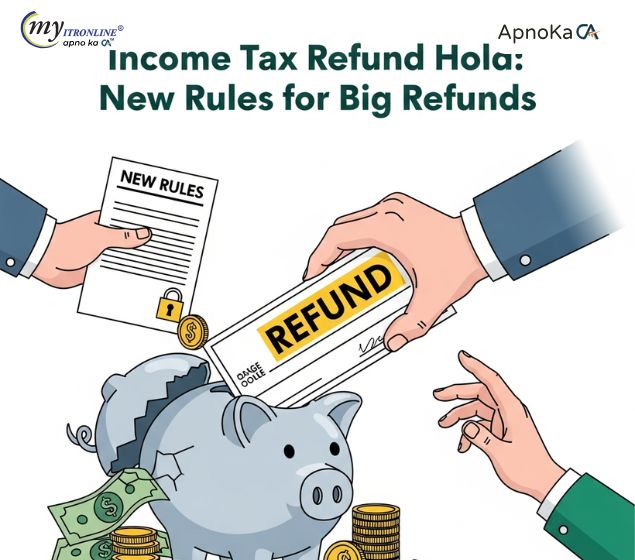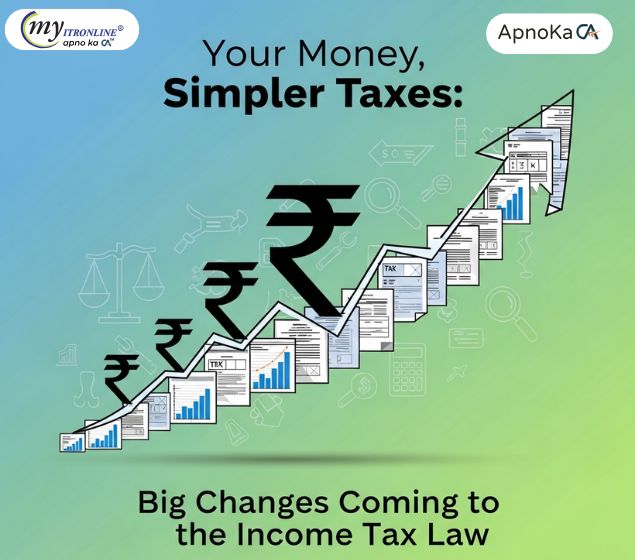Received an Income Tax Scrutiny Notice u/s 143(2) for AY 2024-25? Here's What You Need to Know
The Income Tax Department has begun dispatching scrutiny notices under Section 143(2) for AY 2024-25. This blog provides a detailed guide on understanding these notices, common reasons for their issuance, a step-by-step response strategy, and essential tips to prevent future scrutiny, ensuring taxpayers can navigate the process effectively.
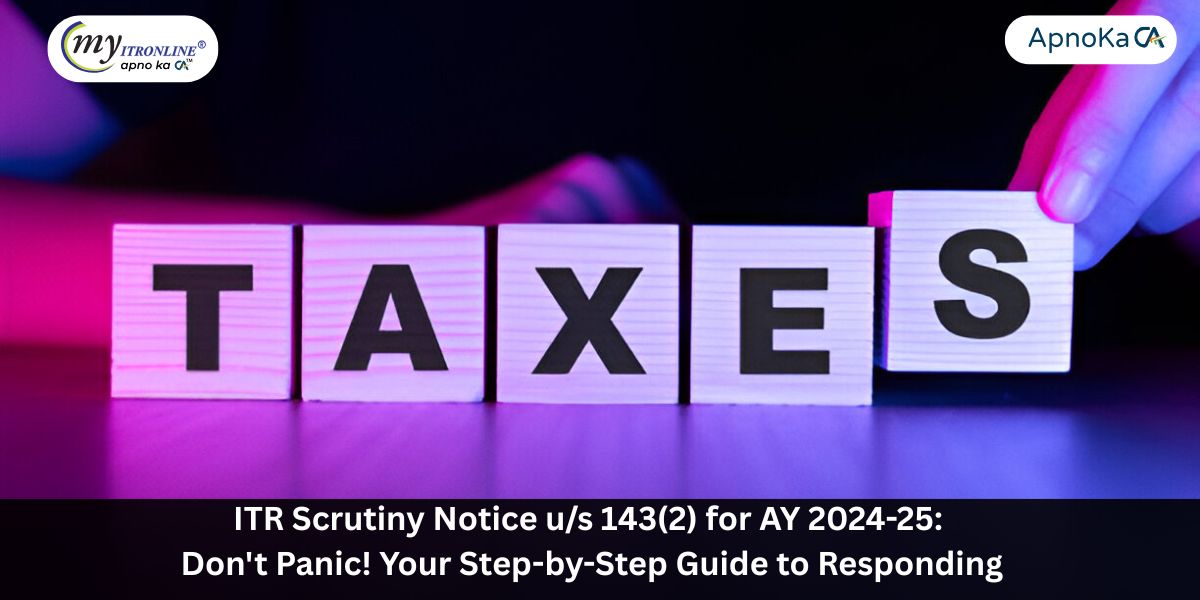
The Income Tax Department has started sending out scrutiny notices under Section 143(2) of the Income Tax Act, 1961, for Assessment Year (AY) 2024-25 (Financial Year 2023-24). This has raised many concerns among taxpayers. If you received such a notice, it’s important to know what it means, why it was issued, and how to respond properly.
This blog aims to clarify Section 143(2) notices and provide a helpful guide for taxpayers.
What is a Section 143(2) Notice?
A Section 143(2) notice is a communication from the Income Tax Department indicating that your Income Tax Return (ITR) has been chosen for an in-depth scrutiny assessment. Unlike a routine notice under Section 143(1) (which processes your return for minor mistakes), a 143(2) notice means that the Assessing Officer (AO) plans to conduct a thorough examination of your filed return to ensure its accuracy and completeness.
The main goals of this scrutiny are to make sure that:
- You have not understated your income.
- You have not claimed excessive losses.
- You have not underpaid taxes.
- There are no mismatches in your financial declarations.
Important Note: Receiving a 143(2) notice does not automatically mean you did anything wrong. It simply means your return needs a closer review.
Types of Scrutiny Notices under Section 143(2)
There are usually three types of scrutiny assessments that might follow a 143(2) notice:
- Limited Scrutiny: This is the most common type, generally initiated through a Computer-Assisted Scrutiny Selection (CASS). It focuses on specific issues identified by the system, such as discrepancies in TDS credits with Form 26AS/AIS, high refund claims, or specific deductions. The examination is limited to the issues mentioned in the notice.
- Complete Scrutiny: This involves a full review of your entire ITR, including all sources of income, expenses, deductions, and assets. While often triggered by CASS, the AO has a broader scope to examine all aspects of your financial situation for the assessment year.
- Manual Scrutiny: In some high-risk or complex cases, returns may be selected manually by tax authorities based on predefined criteria set by the Central Board of Direct Taxes (CBDT). These criteria can change yearly and are usually not disclosed to the taxpayer.
Why Your Return Might Be Selected for Scrutiny (Common Reasons for AY 2024-25)
The Income Tax Department uses data analysis and Artificial Intelligence (AI) to find possible discrepancies. Here are some common reasons that could lead to a Section 143(2) notice for AY 2024-25:
- Mismatch in Data (Form 26AS/AIS/TIS vs. ITR): This is probably the most frequent reason. If the income, TDS, or high-value transactions in your ITR do not match the data available to the Income Tax Department (from Form 26AS, Annual Information Statement (AIS), or Taxpayer Information Summary (TIS)), your return is likely to be flagged.
- High-Value Transactions: Major transactions like property purchases or sales, large bank deposits or withdrawals, foreign travel expenses, or significant investments (shares, mutual funds) that are not consistent with your declared income can trigger scrutiny.
- Unusual or Excessive Deductions/Exemptions: Claiming very high deductions under sections like 80C, 80D, HRA, or home loan interest that seem disproportionate to your income can draw attention.
- Capital Gains/Losses: Reporting large capital gains or losses, especially from equity or F&O trading, might lead to scrutiny to confirm the accuracy of your calculations and disclosures.
- Inconsistencies in Business Returns: For businesses, mismatches between ITR and GST returns, unusually high expenses, or significantly different profit margins compared to industry averages can be warning signs.
- Large Refund Claims: While genuine refunds are processed, unusually large or repetitive refund claims may prompt the department to check the reasons behind them.
- Prior Year Scrutiny/Additions: If you had additional income in past assessment years (especially if upheld on appeal) and similar issues arise in the current return, it can lead to mandatory scrutiny.
- Information from Other Agencies: Tips from law enforcement agencies (e.g., CBI, ED), regulatory bodies, or other tax authorities suggesting potential tax evasion can trigger scrutiny.
- Random Selection (CASS): Even if there are no clear discrepancies, a percentage of returns are randomly selected by the Computer-Assisted Scrutiny Selection (CASS) system for quality checks.
Timeline and Validity of a 143(2) Notice
For returns filed for AY 2024-25 (FY 2023-24), a notice under Section 143(2) must be issued within three months after the end of the financial year in which the return was filed.
Example: If you filed your ITR for AY 2024-25 on July 31, 2024, the financial year ends on March 31, 2025. Therefore, the notice under Section 143(2) must be issued by June 30, 2025. If the notice is issued after this deadline, you can challenge it as time-barred.
How to Respond to a Section 143(2) Notice: A Step-by-Step Guide
Receiving a scrutiny notice can be intimidating, but responding in an organized and timely manner is important for a smooth resolution.
-
Don't Panic, But Don't Ignore It:
Ignoring the notice is the worst thing you can do. Non-compliance can lead to serious consequences, including penalties, best judgment assessment (where the AO assesses your income based on available information without your input), and even prosecution.
-
Verify the Authenticity of the Notice:
- Check the e-filing portal: All valid notices are posted to your Income Tax e-filing account under "Pending Actions" > "e-Proceedings." You will also receive email and SMS notifications. Always verify the notice on the official portal.
- Confirm details: Make sure the PAN, Assessment Year, and your name on the notice are correct.
-
Understand the Notice and Grounds for Scrutiny:
- Read the notice carefully. It usually specifies the reason(s) for scrutiny (e.g., "limited to verification of large cash deposits," or "mismatch in TDS").
- Note the deadline for your response.
-
Gather All Relevant Documents:
This is the most crucial step. Collect all documents that support the claims and income declared in your ITR.
Commonly requested documents include:
- Filed ITR copy and ITR-V (acknowledgment).
- Form 16 (for salaried individuals), Form 16A, 26AS, AIS, TIS.
- Bank statements (savings, current, fixed deposits) for the whole financial year.
- Investment proofs (PPF, ELSS, Mutual Funds, Life Insurance, etc.).
- Proof of deductions claimed (e.g., medical bills for 80D, rent receipts for HRA, education loan interest certificate).
- Capital Gains statements from brokers/mutual funds.
- Property transaction documents (sale/purchase deeds).
- Loan statements (home loan, personal loan).
- Business/Professional books of accounts (ledgers, cash book, bank book, invoices, bills) if applicable.
- Any other document specific to the query raised in the notice.
-
Prepare a Comprehensive Response:
- Draft a clear, point-by-point response addressing each question in the notice.
- Clearly link your explanations to the supporting documents. For example, "As per Bank Statement, Page 5, dated DD/MM/YYYY, the transaction of ₹X Lakh is..."
- Be factual, accurate, and concise. Avoid unnecessary jargon or emotional language.
- If there was a genuine error in your filing, acknowledge it and express your willingness to file an updated return (if applicable and within time limits) or pay any additional tax due with interest.
-
Submit Response Online (Preferably):
- The Income Tax Department encourages online responses through the e-filing portal under the "e-Proceedings" section.
- Upload your response letter and all supporting documents in PDF format. Make sure documents are properly categorized and named for easy reference.
- Always download and save the acknowledgment receipt of your submission.
-
Attend Hearings (If Required):
- In some cases, the Assessing Officer might schedule a virtual or physical hearing.
- Be ready to explain your submissions and provide further details. Keep all original documents handy for verification if requested.
- Be respectful and cooperative.
-
Follow Up and Await Assessment Order:
- The AO will review your submissions and may ask for more information. Respond promptly to any follow-up queries.
- After considering all evidence, the AO will issue an Assessment Order under Section 143(3), determining your final taxable income and tax liability. This order will be posted to your e-filing portal.
- If you disagree with the assessment order, you have the right to appeal to the Commissioner of Income Tax (Appeals) within 30 days.
Consequences of Non-Compliance
Ignoring a Section 143(2) notice or failing to provide sufficient information can lead to:
- Best Judgment Assessment (Section 144): The AO can assess your income based on their best judgment and available information, which typically results in a higher tax demand.
- Penalties: Penalties can arise under Section 271(1)(b) (for not complying with the notice) or Section 270A (for under-reporting or misreporting income).
- Interest: Additional interest under Sections 234A, 234B, and 234C for delayed tax payment.
- Prosecution: In serious cases of willful non-compliance or income concealment, prosecution may follow.
How to Avoid Future Scrutiny Notices
Prevention is always better than cure. Here are some best practices:
- File Accurate Returns: Always report all sources of income, deductions, and exemptions truthfully and correctly.
- Reconcile Form 26AS/AIS/TIS: Before filing your ITR, thoroughly check all entries in your Form 26AS, AIS, and TIS against your financial records. Resolve any discrepancies before filing.
- Maintain Proper Documentation: Keep detailed records of all your income, expenses, investments, and transactions for at least 8 years.
- Avoid Large Cash Transactions: Minimize large cash transactions when possible, and ensure proper documentation for any such transactions.
- Seek Professional Help: If your tax situation is complex or you have high-value transactions, consider consulting a qualified Chartered Accountant (CA) or tax professional. Their expertise can help ensure compliance and lower the chances of scrutiny.
Conclusion
The mass sending of Section 143(2) notices by the Income Tax Department shows their increased use of technology and data analysis to enforce tax compliance. While this can be concerning, approaching it with a calm and informed attitude is crucial. Understand the notice, gather your documents, respond accurately and promptly, and don’t hesitate to seek professional help. By doing so, you can navigate the scrutiny process effectively and keep your tax affairs in good order.
FILING YOUR INCOME TAX RETURN F.Y 2024-25 (A.Y. 2025-2026) WITH MYITRONLINE
The income tax filing deadline is right around the corner. If you haven’t filed yet, do it today with Myitronline! Avoid last minute rush and file your tax return today on MYITRONLINE in Just 5 mins.(www.myitronline.com)
If you are looking for eCA assistance to file your income tax return/ GST, you can opt for MYITRONLINE eCA assisted plan starting
Upload Salary Individual Form-16
If you have any questions with filing your tax return, please reply to this mail. info@myitronline.com OR call 9971055886,8130309886.
Note-All the aforementioned information in the article is taken from authentic resources and has been published after moderation. Any change in the information other than fact must be believed as a human error. For queries mail us at marketing@myitronline.com
Krishna Gopal Varshney
An editor at apnokacaKrishna Gopal Varshney, Founder & CEO of Myitronline Global Services Private Limited at Delhi. A dedicated and tireless Expert Service Provider for the clients seeking tax filing assistance and all other essential requirements associated with Business/Professional establishment. Connect to us and let us give the Best Support to make you a Success. Visit our website for latest Business News and IT Updates.
Leave a reply
Your email address will not be published. Required fields are marked *Share this article
Krishna Gopal Varshney, Founder & CEO of Myitronline Global Services Private Limited at Delhi. A dedicated and tireless Expert Service Provider for the clients seeking tax filing assistance and all other essential requirements associated with Business/Professional establishment. Connect to us and let us give the Best Support to make you a Success. Visit our website for latest Business News and IT Updates.
View articles








